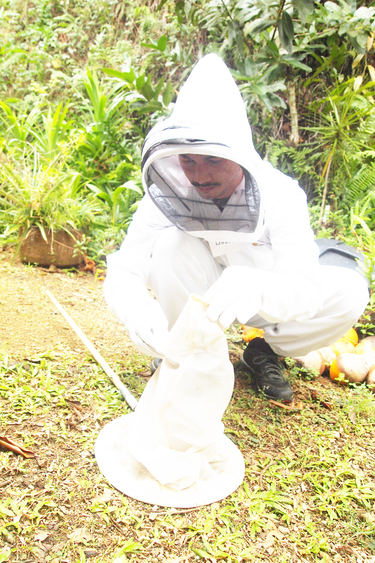Triton’s Call Staff
The inaugural Beekeepers Association meeting was held at the University of Guam Agriculture and Life Sciences Building on Sept. 30. Entomologist Ross Miller, Ph.D. and Christopher Rosario, a research assistant with the Western Pacific Tropical Research Center, hosted the meeting.
One of the topics discussed was the varroa mite, which is a current threat to the local honeybee population. The varroa mite is an ectoparasite that has affected places such as Hawaii, which has been barred from exporting queen bees by the United States Department of Agriculture (USDA). Guam and the U.S. are currently able to receive bees from Canada and New Zealand.
Initially, Miller decided to conduct the National Honeybee Survey to examine pests and diseases of Guam and Saipan’s honeybee population.
Funding was provided by the USDA Farm Bill grant and administered via the USDA Animal and Plant Health Inspection Service (APHIS). Ongoing surveys of Rota and Tinian have not shown traces of the mite yet.
If Guam were certified mite-free, there would be an opportunity for the island to export queen bees, which is a billion dollar industry.
Rosario agreed that there hadn’t been an opportunity for local beekeepers to do this in the past, and he believed that the club would be useful for them and the community.
One of the goals of the club is to provide a platform for local beekeepers to share their progress and network among the community.
“If you were to look on Google and you type in ‘beekeeping on Guam’ you’d probably find one or two sources and that’s it,” he said.
Overall, Rosario hopes to promote collaboration amongst beekeepers and increase awareness of the importance of honeybees via outreach programs in schools.

